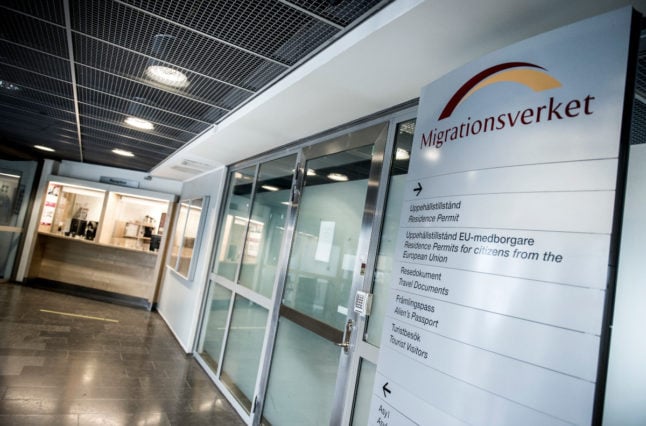For international students looking to master’s programmes or bachelor’s degrees in Sweden, the wait for a residency permit can be agonising. If the Migration Agency fails to handle their application in time for term start, they risk seeing their plans for the next year fall apart completely.
When The Local got in touch with the international admissions offices of the big universities, almost all said that while they still had some prospective students waiting for permits, this year the number waiting was normal.
“It’s not one of our worst years, yet,” said Maria Olsson, programme manager at the Karolinska Institute medical university, but she said that this didn’t mean there were no students likely to miss the chance of studying.
“At the moment, we have some students who are waiting for their decisions and they feel very stressed and uncomfortable. And then we have some students who have got their time for interview by the 24th of August, which sort of means they won’t make it,” she said.
“We don’t see any more disruption around residency than in previous years,” said. Katarina Jonsson Berglund, head of the education office at KTH Royal Institute of Technology, while Disa Karlsson, international coordinator at Stockholm University, said that the number of questions she was getting from students on residence permits was “relatively comparable to previous years”.
Cilla Häggkvist, deputy head of division at Uppsala University’s Student Affairs and Academic Registry Division, also said that she had not had anyone ringing the alarm bells from within her university.
“Sometimes it’s because it takes too much time at the embassy and sometimes it’s because of delays at the Migration Agency, but I haven’t heard that its worse this year,” she said.
According to the Swedish Migration Agency, a total of 2,555 prospective international students who have requested for residency permits were still waiting for a response.
Of those, applicants with Nigerian citizenship suffered the most hold-ups with 510 students waiting for permits, followed by 502 students from Sri Lanka, 281 from India and 271 from Iran.
The 19 students from Turkey who were waiting for a response have been waiting the longest, with an average wait of 151 days, followed by the 20 students from the UK, with an average wait of 137 days and the 50 students from the US, with an average wait of 125 days.
As the data on waiting times only reports on the waiting times of those who have not yet received a residency permit or a rejection, it may be that the UK and US students look worse than they are because of a small number of difficult cases.
According to a page on the agency’s website explaining how it handles student permits, applications are most often delayed if there are issues with any of the documents sent as part of the application, if Sweden’s Säpo security police need to get involved, or if the Migration Agency deems that it needs to work with its embassy in the student’s home country to investigate the applicant.



 Please whitelist us to continue reading.
Please whitelist us to continue reading.
Member comments